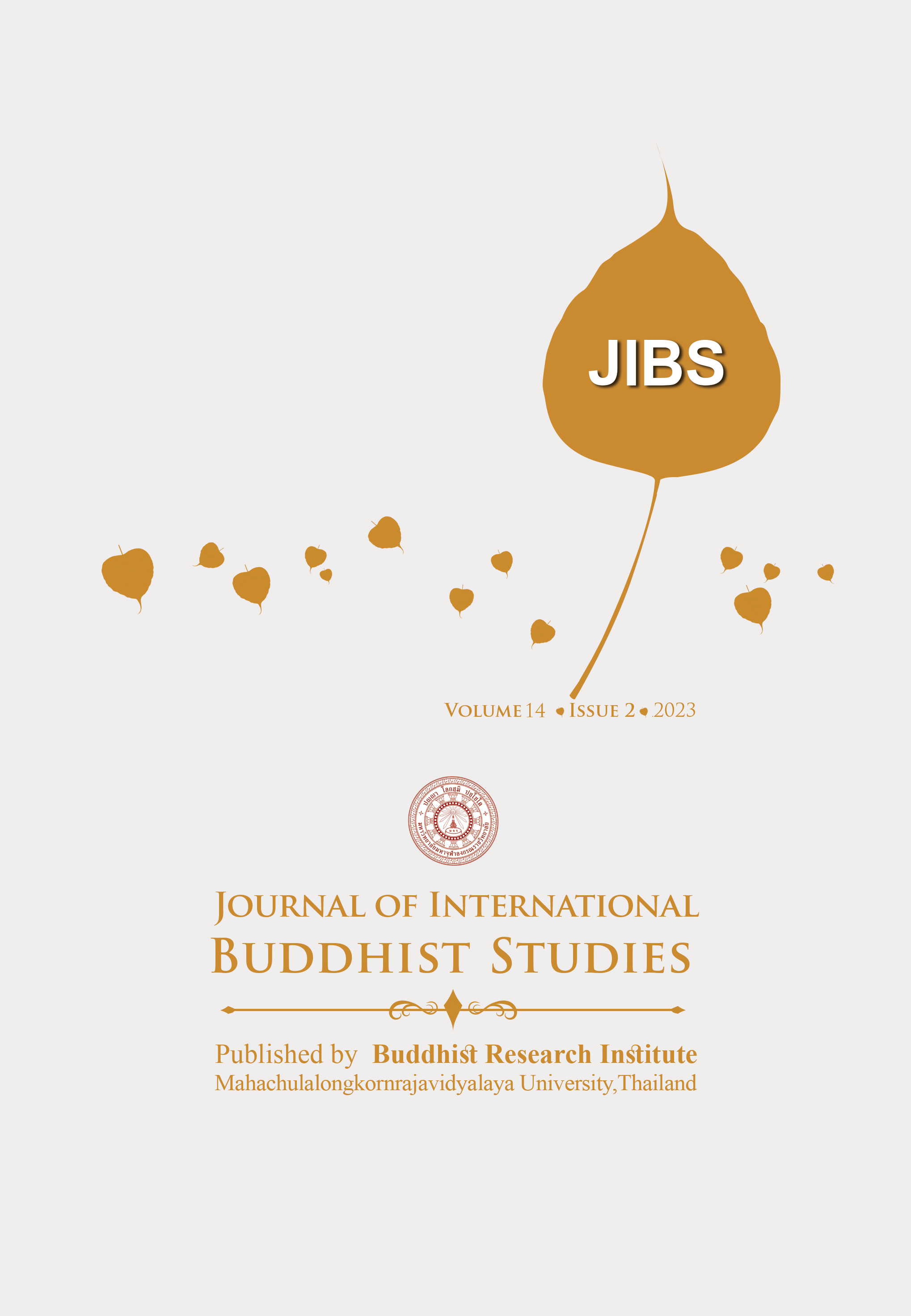The Tea Tree Consecration Ceremony of Bulang Tradition under the Theravāda Buddhism in Laoman’e Village: An Empirical Study
DOI:
https://doi.org/10.65680/23021422023Keywords:
Laoman’e Bulang Tradition, Bulang Ethnic Group, Tea Trees Consecration, Theravāda BuddhismAbstract
This study focuses on the tea tree consecration ceremony of the Bulang ethnic people in the Laoman’e village of Xishuangbanna (Yunnan) China. The study applied the qualitative research method in the sociological approach to religious studies. This consists of an in-depth interview with 17 research subjects, and the samples were selected from the Bulang ethnic community who are knowledgeable about the tea culture and religion in the Laoman’e village of Xishuangbanna, Yunnan. There are a total of three objectives in this research study: 1) to study the historical background of tea and how tea culture influences Theravāda Buddhism in Yunnan, 2) to investigate tea culture in relation to Theravāda Buddhism, and 3) to analyze the importance of the tea tree consecration ceremony in Bulang society. The first finding strongly indicates a long-standing relationship between tea-drinking culture and Buddhism, since both were brought to China from the nearby country of India. The second finding suggests that there are two methods used to perform the tea tree consecration ceremony: traditional rituals and Theravāda Buddhist culture. And the third finding shows that the Bulang ethnic group places great significance on the tea tree consecration ceremony and its culture in terms of economics, Buddhism, culture, rites and rituals, and society at large.
References
Han, Paul L. Chapter II: Tea and Tourism; Tourists, Traditions and Transformations. UK: The Cromwell Press, 2007.
Han, Ruan. Hangzhou. China: Zhejiang Press, 1995.
Lee, Jolliffe. Tea and Tourism, Tourists, Traditions and Transformations. Canada: the Cromwell Press, 2007.
Mullaney, Thomas S. “Ethnic Classification Writ Large: The 1954 Yunnan Province Ethnic Classification Project and Its Foundation in Republican-era Taxonomic Thought.” Information of China: Beijing, China 18 (2004): 207-241.
Pals, Daniel L. Chapter III: Society as Sacred in Eight Theories of Religion. London: The University of Oxford Press, 2006.
Shi, L, et al. “Genetic Link Among Hani, Bulang, and Other Southeast Asia Population: Genes and Haplotypes Distribution.” International Journal of Immunogenetics: Beijing, China 37 (2010): 467-475.
Stausberg, Michael and Steven Engler. The Routledge Handbook of Research Methods in the Study of Religion. New York: The Routledge, Taylor & Francis Group, 2011.
Xingue, Li, et al. “Effects of Organic and Other Management Practices on Soil Nematode Communities in Tea Plantation: A Case Study in Southern China, Beijing, China.” Journal of Plant Nutrition and Soil Science 177 (2014): 604–612.
Xiusong, Li. "Chinese tea culture." Journal of popular culture 27 (1993): 75.
Yaoping Liu., and Yan Wenen, “Making the King of Tea Tree in the Bulang Laoman’e Village, Xishuangbanna: Conceptualization and Buddhist Consecration.” Journal of the Philosophical and Religious Association of Thailand: Bangkok 15 (2020): 66-78.
Zhen, Ma. “Sensorial Place-Making in Ethnic Minority Areas: The Consumption of Forest Puer Tea in Contemporary China.” The Asian Pacific Journal of Anthropology: Beijing, China 19 (2018): 316-332.
Downloads
Published
How to Cite
Issue
Section
License
Copyright (c) 2023 Journal of International Buddhist Studies

This work is licensed under a Creative Commons Attribution 4.0 International License.











